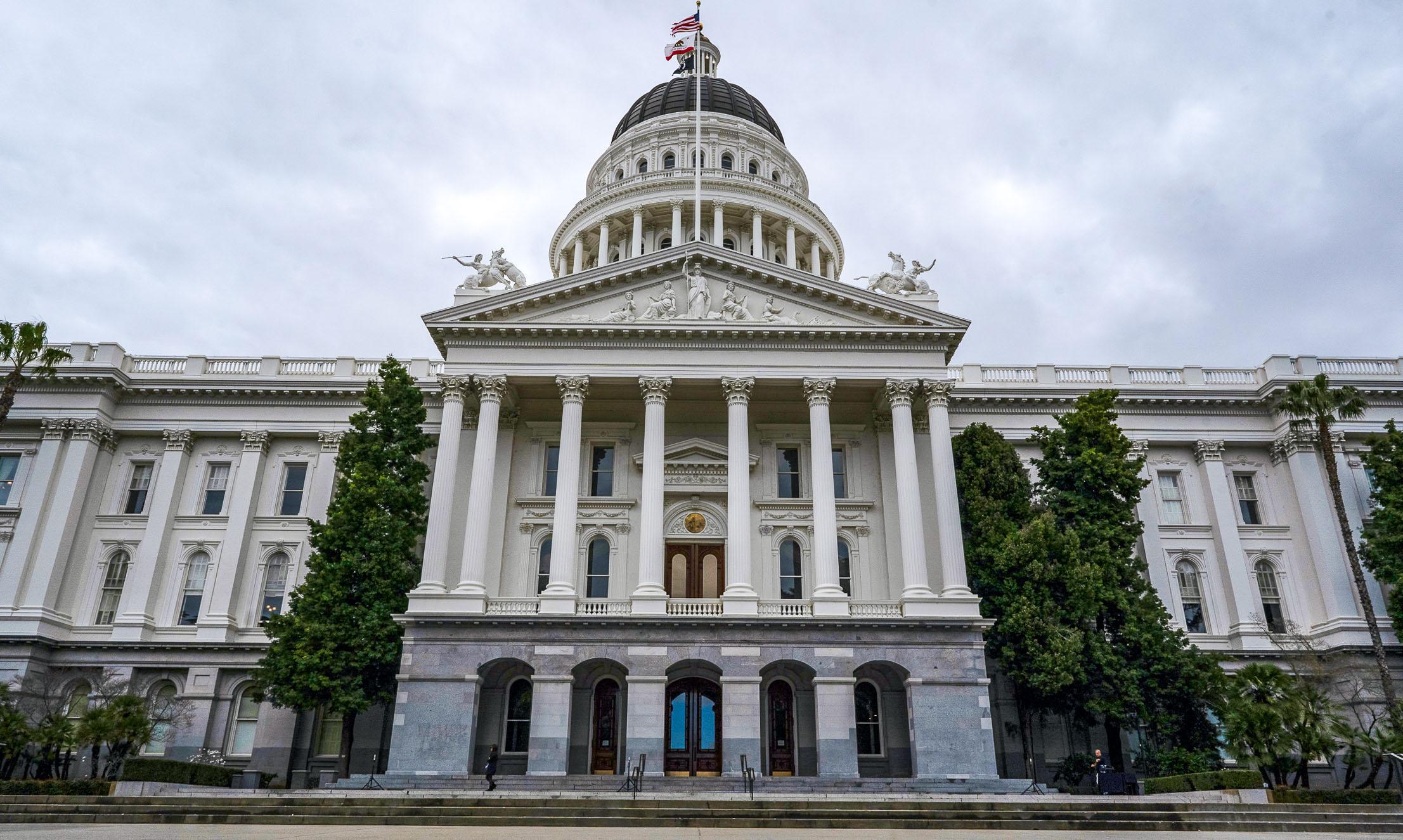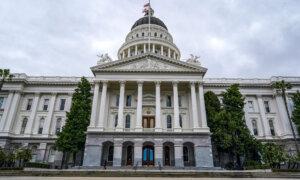California Gov. Gavin Newsom’s administration is “confident” a new state law targeting deepfake election-based content will be upheld after a federal judge blocked the law’s enforcement in a preliminary ruling on Oct. 2, a spokesperson for Newsom’s office told The Epoch Times.
U.S. District Judge John A. Mendez in the U.S. District Court for the Eastern District of California issued a preliminary injunction, blocking the law targeting deepfake content related to elections and candidates.
Newsom signed Assembly Bill 2839 on Sept. 17, prohibiting the distribution of deceptive election-based content “with malice” 120 days before an election and, in specified cases, 60 days after.
The law also authorized recipients and subjects of deepfake communications created by artificial intelligence to file lawsuits against the distributor.
In his ruling blocking the law, Mendez said that it likely violates the First Amendment and that the text of the statute was too broad.
“Most of AB 2839 acts as a hammer instead of a scalpel, serving as a blunt tool that hinders humorous expression and unconstitutionally stifles the free and unfettered exchange of ideas which is so vital to American democratic debate,” he wrote.
The state will appeal the ruling, and the governor’s team is expecting the court to overturn the injunction.
“Deepfakes threaten the integrity of our elections, and these new laws protect our democracy while preserving free speech—in a manner no more stringent than those in other states, including deep-red Alabama,” a spokesperson for the governor’s office told The Epoch Times on Oct. 2. “We’re confident the courts will uphold the state’s ability to regulate these types of dangerous and misleading deepfakes. Satire remains alive and well in California—even for those who miss the punch line.”
The matter rose to national attention on July 27, when billionaire Elon Musk reposted a deepfake video depicting Vice President Kamala Harris on his social media platform X.
Newsom said in a July 29 post that manipulating voices, as was done in the video, should be illegal and that he would enact laws to ensure it is.
The creator of the video, Christopher Kohls, who is known by the moniker “@MrReaganUSA“ on social media, sued the state and requested a preliminary injunction the day AB 2839 was signed into law. He alleged that the law infringes on his speech rights and is “unconstitutionally vague.”
Attorneys for the state argued that the law is constitutional because spreading falsehoods can cause tangible harm and is therefore illegal.
In the ruling, the judge dismissed the state’s argument, finding that untruths that cause tangible harm—including lies about the government—are “precisely the types of speech” safeguarded by the Constitution.
The court further agreed with the plaintiff, citing precedent from multiple state and Supreme Court decisions that upheld the belief that the First Amendment protects citizens from government restrictions on speech.
Mendez also found the law too broad, noting that governments must use other means to achieve their interests. He said that counter-speech is preferable to censorship.
“While California has a valid interest in protecting the integrity and reliability of the electoral process, AB 2839 is unconstitutional because it lacks the narrow tailoring and least restrictive alternative that a content based law requires under strict scrutiny,” the ruling reads.
Advances in technology do not alter the protections offered by the First Amendment, the court held. The ruling stated that the people’s right to criticize elected officials is guaranteed regardless of the medium of expression.
“Supreme Court precedent illuminates that while a well-founded fear of a digitally manipulated media landscape may be justified, this fear does not give legislators unbridled license to bulldoze over the longstanding tradition of critique, parody, and satire protected by the First Amendment,” Mendez wrote.
He ruled that social media posts are akin to newspaper advertisements and political cartoons from prior eras.
“The First Amendment protects an individual’s right to speak regardless of the new medium these critiques may take,” he said.
Another clause in the law that requires parody and satire videos to have disclaimers was also rejected by the court as unconstitutional.
“For parody or satire videos, AB 2839 requires a disclaimer to air for the entire duration of a video in text that is no smaller than the largest font size used in the video,” Mendez said. “In Plaintiff Kohls’ case, this requirement renders his video almost unviewable, obstructing the entirety of the frame.”
He concluded that California is obligated to protect the rights guaranteed by the state and federal constitutions.
“California’s interest and the hardship the state faces are minimal when measured against the gravity of First Amendment values at stake and the ongoing constitutional violations that Plaintiff and other similarly situated content creators experience while having their speech chilled,” Mendez wrote.
Consultants with the California Senate Judiciary Committee foresaw legal challenges to AB 2839 when they considered the bill in June.
“As the bill prohibits certain forms of speech, it implicates the protections of the First Amendment of the United States Constitution, applied to the states by the Fourteenth Amendment,” the consultants wrote in their legislative analysis. “California courts have been clear that political expression in the context of campaigns of any manner should be given wide latitude. ... This bill implicates both the right to speak about elections, as well as the right to receive information regarding them.”
They concluded that the bill was “arguably narrowly tailored” enough to pass judicial scrutiny.
Critics of the legislation argued that the law would place a burden on those who unknowingly shared such content but were not responsible for creating any deepfakes.
“We recognize the complex issues raised by potentially harmful artificially generated election content,” the Electronic Frontier Foundation, a nonprofit focused on defending civil liberties, said in a legislative analysis. “By extending beyond the direct publishers of the content and toward republishers, A.B. 2839 burdens and hold[s] liable re-publishers of content in a manner that has been found unconstitutional.”














